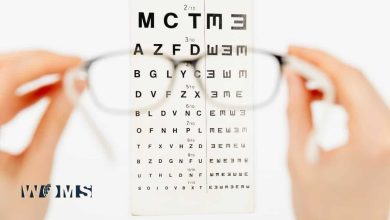What is Depression? Symptoms, Causes, and Treatment of Depression

What is Depression?
Depression is a mental health disorder that affects an individual’s mood, thoughts, and behavior. It’s a very common condition among people that can affect all genders, age groups, and backgrounds alike. Depression is characterized by a persistent feeling of sadness, hopelessness, and a loss of interest in activities that one typically enjoys.
Depression can manifest in different ways, including feelings of guilt, irritability, anxiety, and fatigue. It can also affect an individual’s appetite, sleep patterns, and ability to concentrate. In extreme circumstances, depression may give rise to suicidal or self-harming thinking.
There are several factors that can contribute to depression, including genetics, environmental factors, and brain chemistry. People who have a family history of depression or have experienced traumatic events, such as abuse or the loss of a loved one, maybe at a higher risk of developing depression symptoms.
It is important to seek professional help if you suspect that you or someone you know may be experiencing depression. Those suffering from depression may overcome and have fulfilled lives with the right therapy and assistance.
Symptoms
Depression is a mental health condition that can cause persistent feelings of sadness, hopelessness, and a loss of interest in activities that were once enjoyable. It is important to recognize the symptoms of depression so that individuals can seek help and support from a mental health provider.
Some common symptoms of depression include:
- Persistent feelings of sadness or hopelessness.
- Lack of dedication in previously liked tasks.
- Changes in appetite and sleep patterns.
- Feelings of worthlessness or guilt.
- Difficulty concentrating and making decisions.
- Low energy levels and fatigue.
- Headaches, digestive problems, and back discomfort are among the physical ailments.
- Thoughts of suicide or self-harm.
Depression can manifest differently in each individual, and symptoms can vary in intensity and duration. Some individuals may experience symptoms of depression for a short period, while others may experience them for an extended period.
If you or somebody you care about is suffering from depression and anxiety, it is vital that you get specialist care. Mental health providers can help individuals manage their symptoms through a variety of treatment options, including therapy, medication, and lifestyle changes. Those suffering from depression can make their lives better and recover their feeling of happiness by receiving the right therapy and depression counseling.
Causes of Depression
Depression is a mental health condition that can be caused by a variety of factors, including biological, psychological, and environmental factors.
Biologically, depression is linked to imbalances in neurotransmitters, which are chemical messengers in the brain that regulate mood. Specifically, lower levels of serotonin, norepinephrine, and dopamine have been associated with depression. Genetics can also play a role in the development of depression, as individuals with a family history of the condition are at a higher risk.
Psychological factors, such as negative thinking patterns, low self-esteem, and past traumas, can also contribute to the development of depression. Individuals who experience chronic stress or have a history of depression or other mental health conditions may be more susceptible.
Environmental factors, such as social isolation, lack of social support, and stressful life events, can also contribute to the development of depression. For example, job loss, financial difficulties, and relationship breakdowns can be significant stressors that cause depression.
Additionally, certain medical conditions, such as chronic pain, thyroid disorders, and heart disease, can also increase the risk of depression. Drug misuse can also result in depressive symptoms.
Overall, depression is a complex condition with multiple causes. Identifying and addressing the underlying factors that contribute to depression can aid in the management and treatment of the condition. Professional help, such as therapy and medication, can be effective in managing depression and improving an individual’s overall well-being.
Treatment
One of the most effective treatments for depression is psychotherapy. This can take many forms, including cognitive-behavioral therapy, interpersonal therapy, and psychodynamic therapy. Psychotherapy can help individuals identify negative thought patterns and behaviors and develop coping strategies to manage them.
Anti-depressants, for instance, may additionally be beneficial in treating anxiety and depression. These medications work by balancing neurotransmitters in the brain that regulate mood. It is necessary to collaborate with a medical expert to determine the best drug and dose for each patient.
In addition to psychotherapy and medication, there are other depression treatment that can be helpful. These include exercise, mindfulness, and light therapy. Individuals with depression need to work with a healthcare provider to develop a comprehensive treatment plan that addresses their unique needs. With the right treatment, depression can be effectively managed, and individuals can experience improved quality of life.
Conclusion
Depression is a complicated psychological health illness that impacts millions of individuals throughout the world. It is identified by continuous feelings of being sad, hopeless, and having no interest in day-to-day activities. While depression can be challenging to treat, there are effective therapies and medications available that can help manage symptoms.
It’s important to recognize that depression is a treatable illness and seeking professional help such as ChatADoc would help a lot in coping with depression. With the right treatment, individuals with depression can improve their quality of life and achieve long-term recovery. Moreover, self-care activities like yoga, obtaining adequate sleep, and engaging with dear ones can help manage psychological distress.
Overall, depression is a serious condition that should not be ignored, and it’s essential to seek help and support from qualified mental health professionals.




